As AI reshapes the global economy with unprecedented growth potential, there's a risk of power concentration in large corporations and states. To prevent crises in labor, democracy, and economics, we need a decentralized cybernetic economy. This involves open-source ML, blockchain, and P2P networks, creating a system where AI capabilities are distributed, transparent, and respect individual sovereignty. The goal is empowering individuals rather than centralizing control.
Post-scarcity world is near, but so do the dangers of coercion and inequality.
Technology can achieve prosperity for all but that’s not the default path. How can we build an open cybernetic economy for the AI age?
Based on my @dAGIhouse keynote https://t.co/QCmk08zQjb
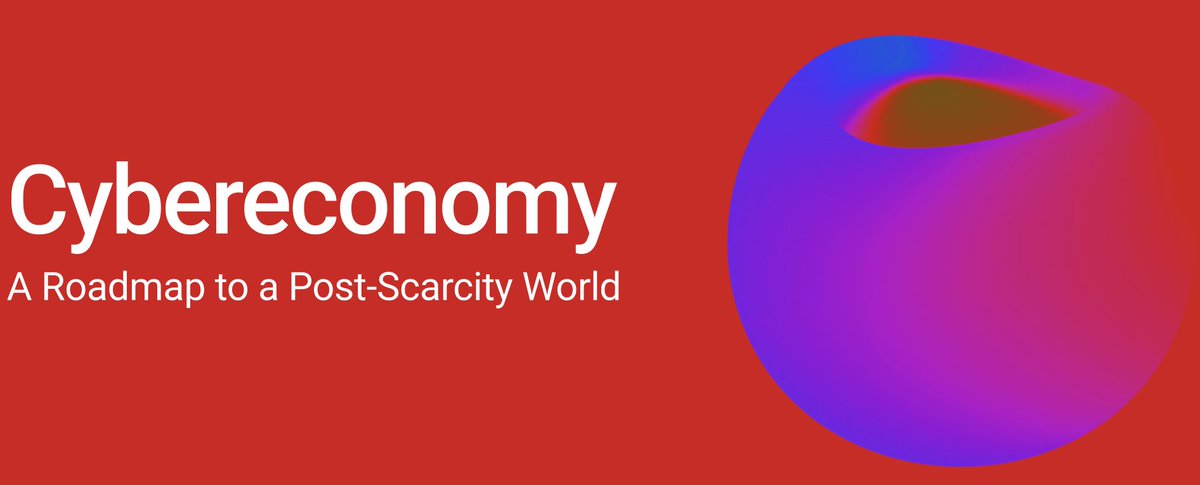
10 years ago, @cyberFund_ published a report on the technologies transforming society and economy.
Since then, Ethereum, Transformer-based LLMs and other breakthroughs emerged. It’s time to revisit and update those ideas. https://t.co/HXOftILwAt
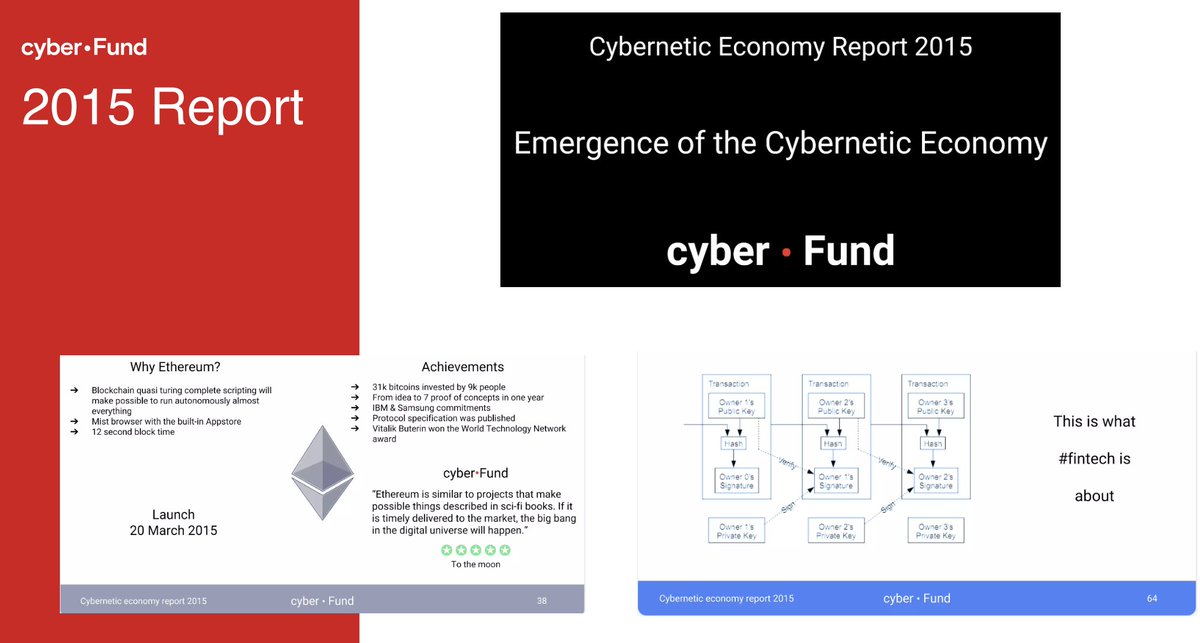
AI is reshaping the world economy. Why?
- LLMs scale predictably in training & inference
- It extends to complex, agentic, multi-agent systems
- General, impacts every sector
- Self-reinforcing: better AIs build better AIs
Rapidly closing gaps with human-level performance https://t.co/LNf686ckEO

Intelligence is defined as ability to solve problems.
Solving problems creates knowledge.
As @DavidDeutschOxf notes, demand for knowledge is infinite. AI represents the largest market ever, driving trillions in investment. Most macroeconomic indicators have surged since the industrial revolution And it's expected to grow further with AI and other technological advancement fueling this growth. https://t.co/apZfHPAwto
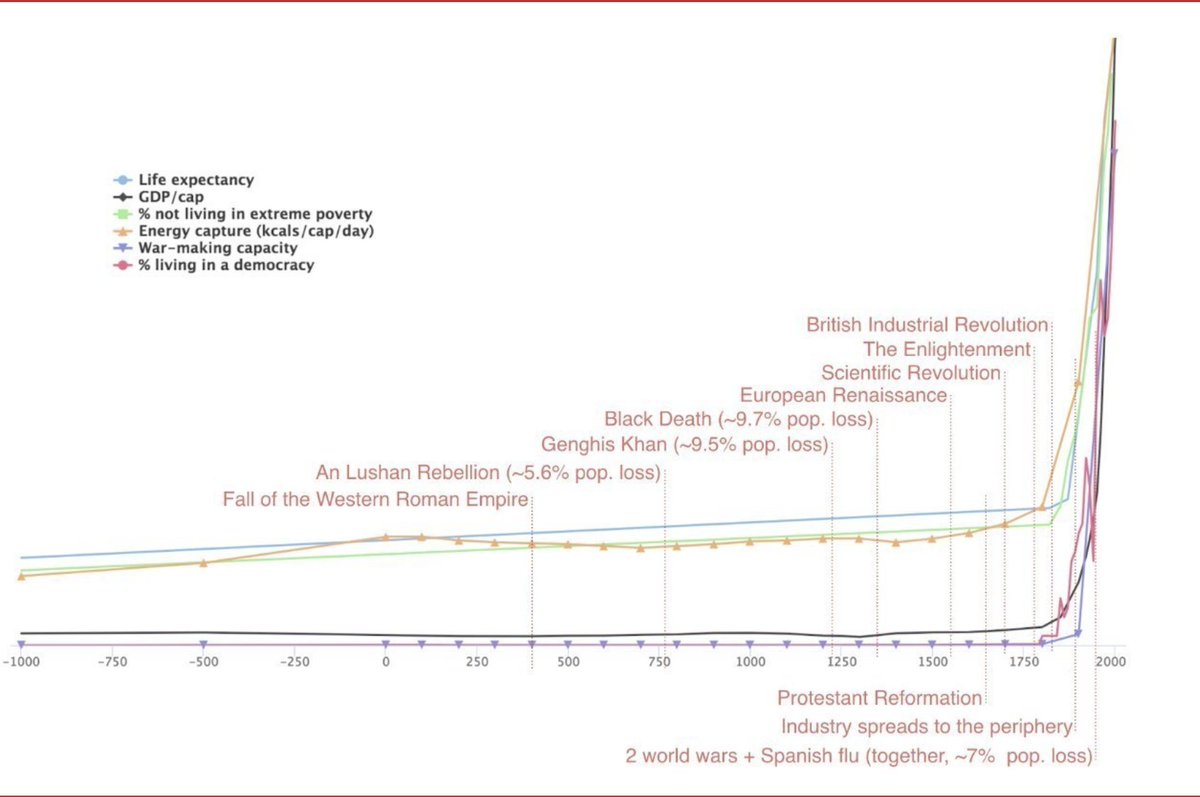
But the economy has a problem.
Tech drives growth, but societal coordination lags behind. Outdated institutions are unfit for a digital age. https://t.co/zC0XFXjted
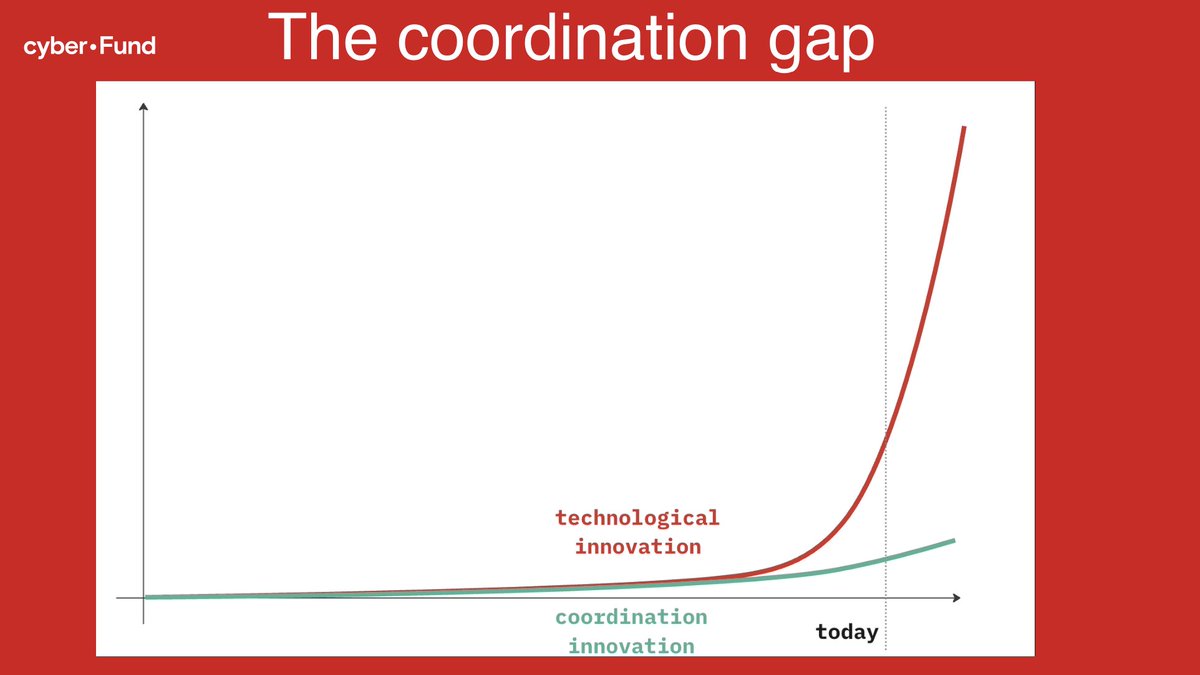
The default path for AI is that it will be accelerating many areas. But it will also be a huge centralizing force due to enormous investments and economies of scale. Which means only the largest state actors and corporations will develop and control the technology. https://t.co/4F2IazeNyu
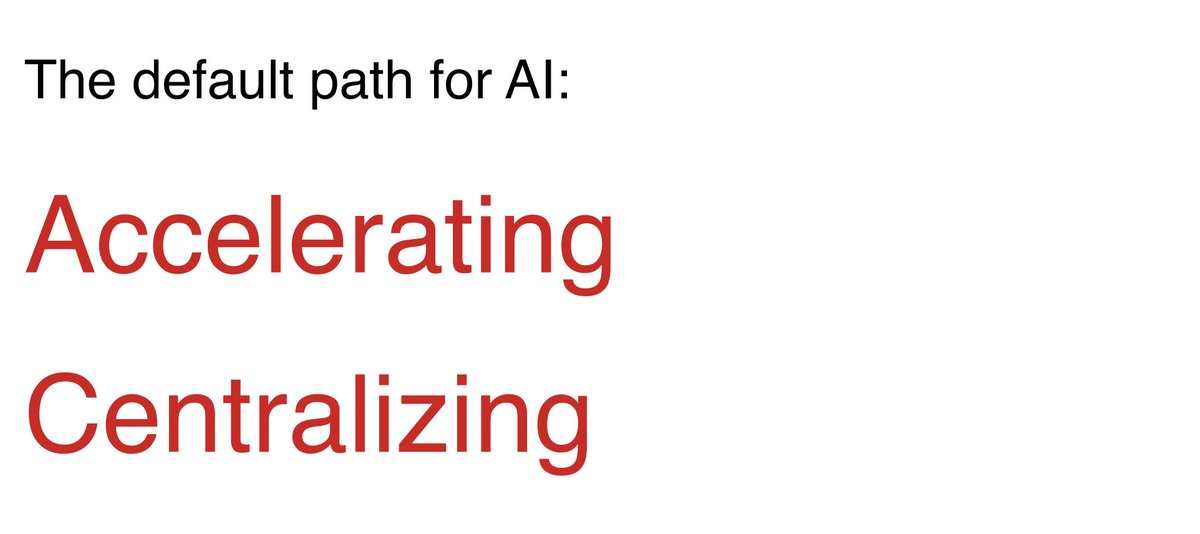
Such imbalance might lead to multiple crises across different areas of the economy:
- Labor market shocks due to automation, productivity growth, deflation and loss of purpose
- Democracy crisis due to production of hateful, polarizing, deep-fake content at scale
- Sovereignty crisis due to over-reliance on 3rd party tools and loss of individual privacy
Economic crisis due to rapid shift in requirements from monetary and fiscal systems

Avoiding this requires an open cybernetic economy.
Cybernetic economy is defined by a shift from manual, opaque, hierarchical, inert institutions to the decentralized, programmable, verifiable, self-regulating alternative. https://t.co/eAY0qU02U8
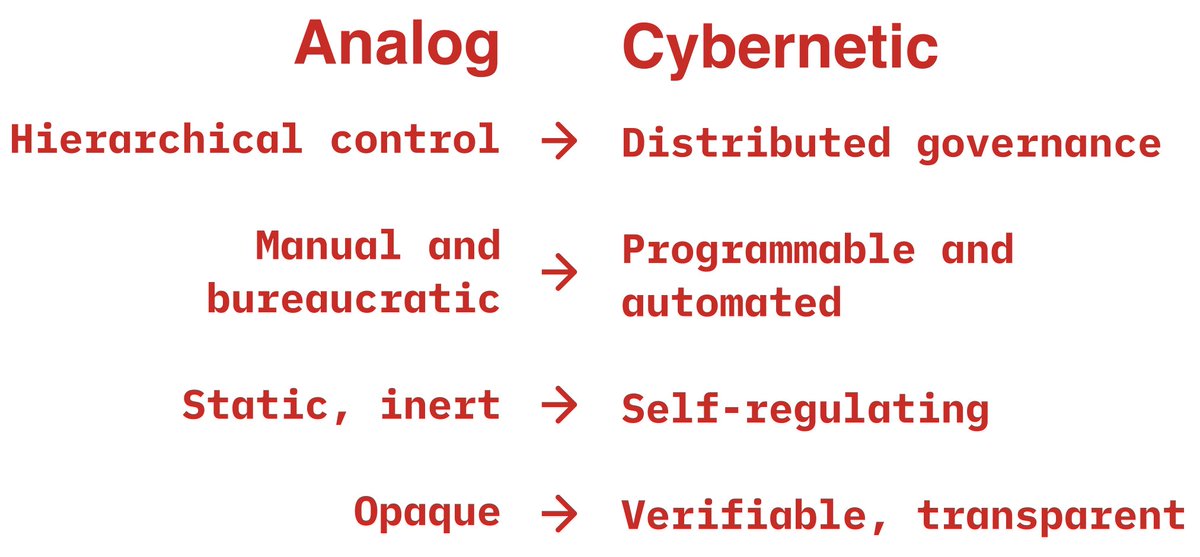
This isn’t a product.
It’s a set of technologies enabling higher personal agency in a digital-first world: cryptography, blockchain, open-source ML, decentralized ID/orgs, p2p networks https://t.co/nQATtp6P7h

On the AI side on things, we need a whole stack of decentralized AI. Open models alone don't solve the problem as they are produced by only a few companies and the whole pipeline is not really open.
Decentralized pre-training and fine-tuning network that allow crowdsourced model creation and leverage decentralized network of hardware operators.
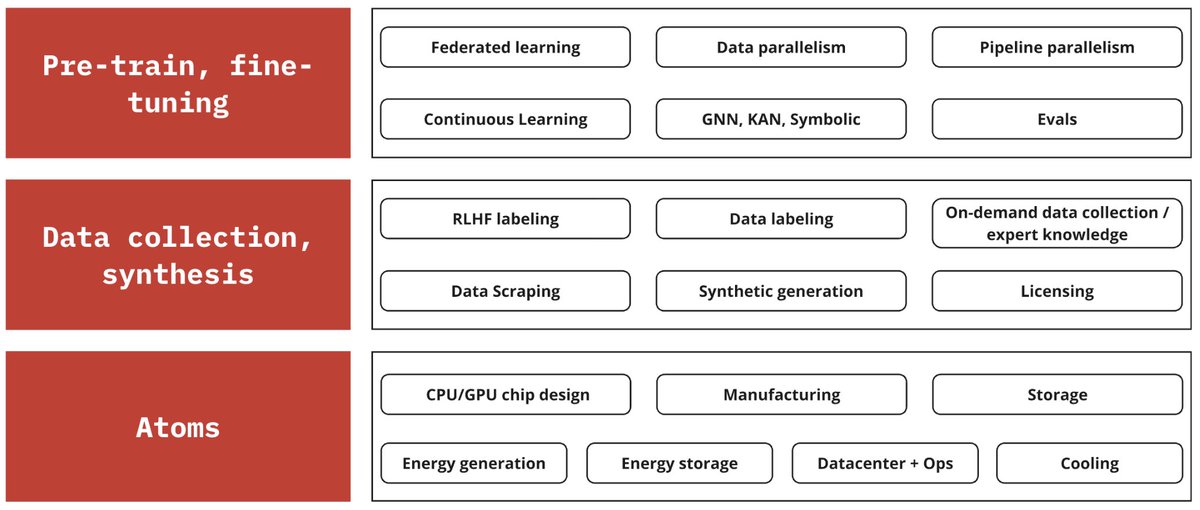
At the inference level we need a variety of private and public (but verifiable) models, as well as edge compute to effectively distribute AI capabilities across devices, reducing reliance on centralized infrastructure. https://t.co/pcb95W8Csa

Finally, at the application level, we need interoperable agentic systems where AI agents can interact, trade, and collaborate autonomously while respecting individual privacy and sovereignty. https://t.co/hKnjfKR3E3
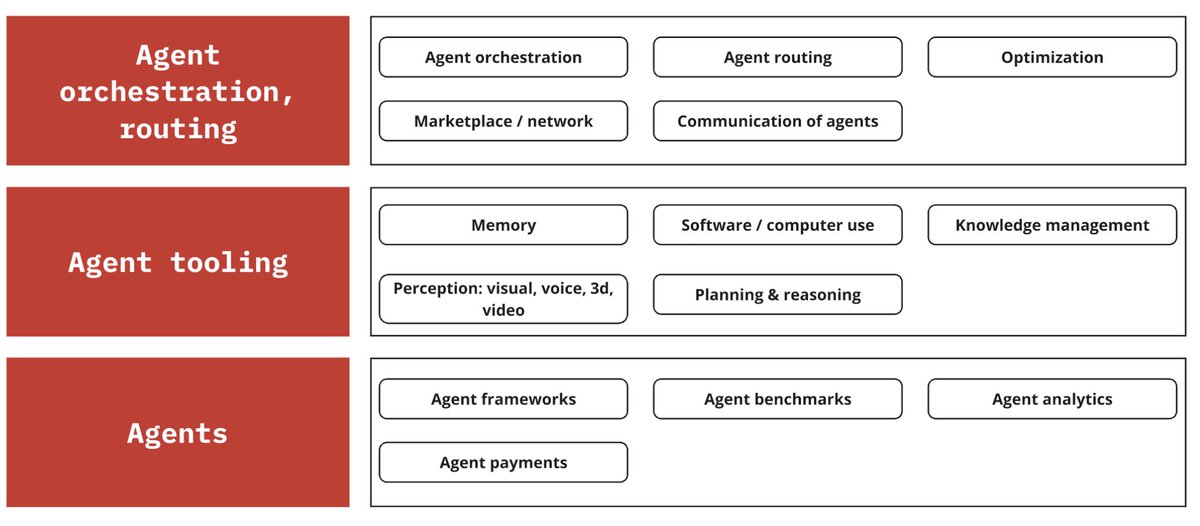
It’s not just about tech. Governance must align incentives, ensure transparency, and resist monopolies. This isn’t about selling tokens. It’s about new, distributed AI creation and ownership. These changes are inevitable. The question isn’t “if” but “who” will control the future.
We must build a system that empower individuals, not concentrate power in corporations or states.
This is what we call a Cybereconomy.
As AI reshapes the global economy, we face potential crises from centralization and outdated institutions. The solution lies in creating an open cybernetic economy using decentralized technologies like blockchain, open-source ML, and P2P networks. This requires developing decentralized AI systems, distributed computing, and better governance to ensure individual empowerment rather than corporate or state control.
Post-scarcity world is near, but so do the dangers of coercion and inequality.
Technology can achieve prosperity for all but that’s not the default path. How can we build an open cybernetic economy for the AI age?
Based on my @dAGIhouse keynote https://t.co/QCmk08zQjb

10 years ago, @cyberFund_ published a report on the technologies transforming society and economy.
Since then, Ethereum, Transformer-based LLMs and other breakthroughs emerged. It’s time to revisit and update those ideas. https://t.co/HXOftILwAt

AI is reshaping the world economy. Why?
- LLMs scale predictably in training & inference
- It extends to complex, agentic, multi-agent systems
- General, impacts every sector
- Self-reinforcing: better AIs build better AIs
Rapidly closing gaps with human-level performance https://t.co/LNf686ckEO

Intelligence is defined as ability to solve problems.
Solving problems creates knowledge.
As @DavidDeutschOxf notes, demand for knowledge is infinite. AI represents the largest market ever, driving trillions in investment. Most macroeconomic indicators have surged since the industrial revolution And it's expected to grow further with AI and other technological advancement fueling this growth. https://t.co/apZfHPAwto

But the economy has a problem.
Tech drives growth, but societal coordination lags behind. Outdated institutions are unfit for a digital age. https://t.co/zC0XFXjted

The default path for AI is that it will be accelerating many areas. But it will also be a huge centralizing force due to enormous investments and economies of scale. Which means only the largest state actors and corporations will develop and control the technology. https://t.co/4F2IazeNyu

Such imbalance might lead to multiple crises across different areas of the economy:
- Labor market shocks due to automation, productivity growth, deflation and loss of purpose
- Democracy crisis due to production of hateful, polarizing, deep-fake content at scale
- Sovereignty crisis due to over-reliance on 3rd party tools and loss of individual privacy
Economic crisis due to rapid shift in requirements from monetary and fiscal systems

Avoiding this requires an open cybernetic economy.
Cybernetic economy is defined by a shift from manual, opaque, hierarchical, inert institutions to the decentralized, programmable, verifiable, self-regulating alternative. https://t.co/eAY0qU02U8

This isn’t a product.
It’s a set of technologies enabling higher personal agency in a digital-first world: cryptography, blockchain, open-source ML, decentralized ID/orgs, p2p networks https://t.co/nQATtp6P7h

On the AI side on things, we need a whole stack of decentralized AI. Open models alone don't solve the problem as they are produced by only a few companies and the whole pipeline is not really open.
Decentralized pre-training and fine-tuning network that allow crowdsourced model creation and leverage decentralized network of hardware operators.

At the inference level we need a variety of private and public (but verifiable) models, as well as edge compute to effectively distribute AI capabilities across devices, reducing reliance on centralized infrastructure. https://t.co/pcb95W8Csa

Finally, at the application level, we need interoperable agentic systems where AI agents can interact, trade, and collaborate autonomously while respecting individual privacy and sovereignty. https://t.co/hKnjfKR3E3

It’s not just about tech. Governance must align incentives, ensure transparency, and resist monopolies. This isn’t about selling tokens. It’s about new, distributed AI creation and ownership. These changes are inevitable. The question isn’t “if” but “who” will control the future.
We must build a system that empower individuals, not concentrate power in corporations or states.
This is what we call a Cybereconomy.